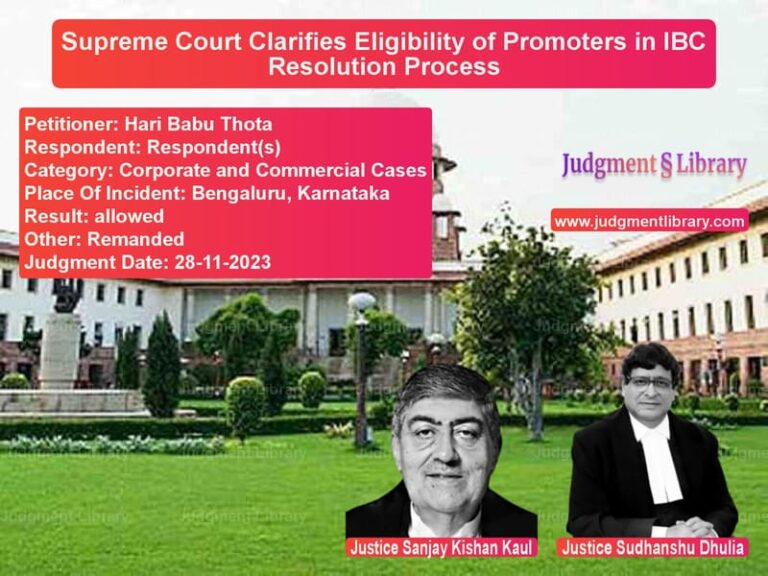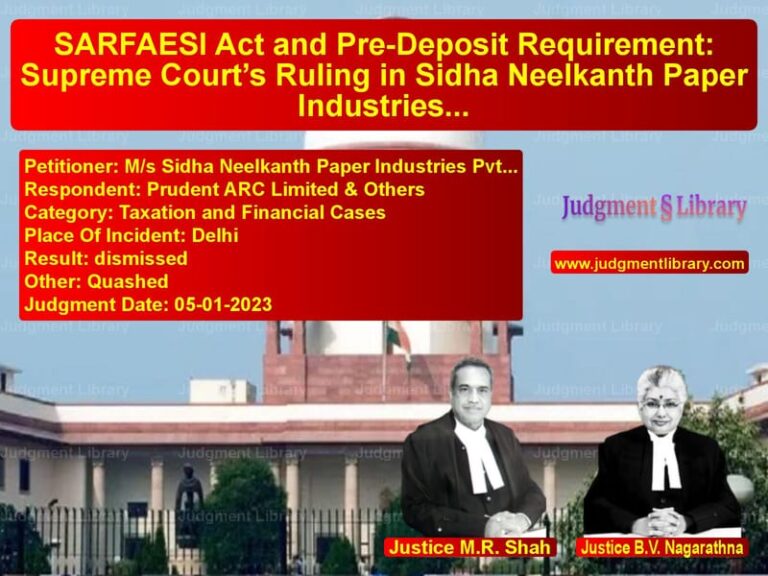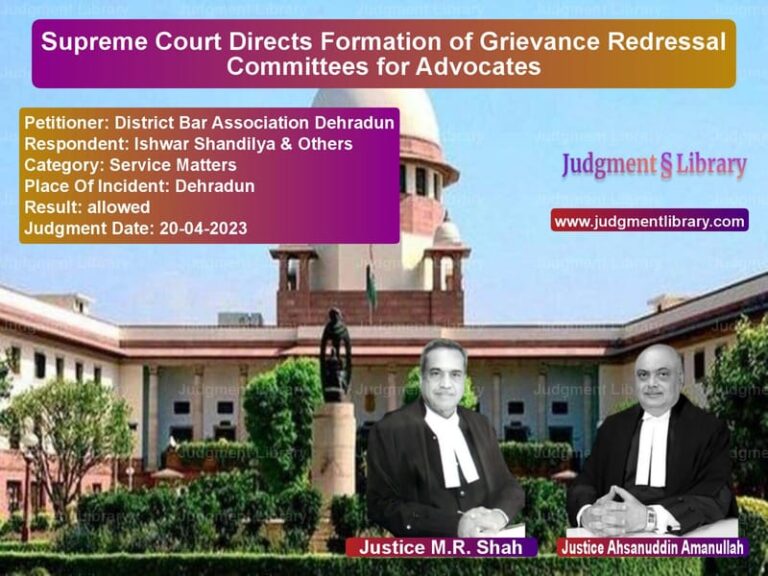BSNL Temporary Status Case: Supreme Court Rules Against Employee’s Regularization Claim
The case of Bharat Sanchar Nigam Ltd. (BSNL) vs. Sri Deo Kumar Rai @ Deo Kumar Ray is a crucial legal precedent concerning the grant of temporary status to casual workers under government schemes. The Supreme Court of India, in this case, examined whether the respondent met the eligibility criteria under the Casual Labourers (Grant of Temporary Status and Regularization) Scheme, 1989. The Court ultimately overturned the High Court’s ruling, holding that the respondent was not entitled to the benefits claimed.
Background of the Case
The dispute arose when the respondent sought temporary status under the 1989 Scheme, which grants temporary status to casual workers who:
- Were working in BSNL on October 1, 1989.
- Had rendered continuous service of at least one year.
- Had been engaged for at least 240 days in that period.
The respondent, along with other casual workers, had been demanding recognition under the scheme. A special Committee was constituted to verify their claims.
Petitioner’s Arguments (BSNL)
BSNL, represented by senior counsel, put forth the following arguments:
- The respondent did not meet the eligibility criteria as he had not worked for 240 days in any calendar year.
- The special Committee verified employment records and found that the respondent had only worked for a maximum of 38 days in a year.
- The respondent had submitted photocopies of employment certificates that were not issued by any authorized officer.
- The Tribunal and High Court ignored the findings of the verification Committee and granted relief without considering official records.
- The Supreme Court’s ruling in State of Karnataka vs. Umadevi (2006) bars irregular workers from seeking permanent status through litigation.
Respondent’s Arguments
The respondent, represented by his counsel, argued:
- He had worked as a casual laborer from 1989 to 1998, though with some breaks.
- The High Court and Tribunal had correctly held that he was entitled to temporary status.
- The breaks in service were artificial and imposed by the employer to deny benefits.
- The photocopies of employment records should be accepted as proof of employment.
Supreme Court’s Observations
The Supreme Court critically analyzed the case and made several key observations:
1. Eligibility Under the 1989 Scheme
The Court reiterated that under the scheme, a worker must have completed at least 240 days of service in a calendar year. The Committee had verified that the respondent had only worked:
- 4 days in 1989
- 29 days in 1992
- 17 days in 1993
- 38 days in 1994
- 38 days in 1995
- 34 days in 1996
- 37 days in 1997
- 17 days in 1998
Thus, the respondent failed to meet the eligibility criteria.
2. Validity of the Employment Records
The respondent relied on photocopied employment certificates. The Court noted:
“The Committee categorically found that these certificates were not issued by any authorized BSNL officer. The authenticity of these documents remains unverified.”
3. Misinterpretation by the High Court and Tribunal
The Supreme Court held that the Tribunal and the High Court misinterpreted the Committee’s findings:
“The Tribunal and High Court ignored the official service records and relied on unauthenticated photocopies. This approach is legally unsustainable.”
4. Misapplication of Umadevi Judgment
The respondent cited Umadevi’s case to claim that long service entitled him to regularization. The Supreme Court rejected this argument:
“The Umadevi judgment only applies to irregular but qualified appointments in sanctioned posts. The respondent was never appointed against a sanctioned post.”
Supreme Court’s Verdict
The Supreme Court ruled in favor of BSNL and:
- Set aside the High Court and Tribunal rulings.
- Held that the respondent was not eligible for temporary status.
- Clarified that employment across multiple years cannot be aggregated to meet the 240-day requirement.
Implications of the Judgment
This ruling has significant implications for labor law and public sector employment:
- Clarifies Eligibility for Temporary Status: Casual workers must meet the 240-day rule in a single calendar year.
- Prevents Misuse of Employment Certificates: Courts must rely on verified records, not unauthenticated photocopies.
- Limits Judicial Overreach: Courts cannot disregard official records to grant relief based on sympathetic considerations.
- Strengthens Public Sector Hiring Rules: Temporary status and regularization must follow strict criteria.
The ruling reinforces that government employment schemes must be implemented as per their intended criteria, preventing misuse of provisions meant for genuinely eligible workers.
Petitioner Name: Bharat Sanchar Nigam Ltd..Respondent Name: Sri Deo Kumar Rai @ Deo Kumar Ray.Judgment By: Justice Hrishikesh Roy, Justice R. Subhash Reddy.Place Of Incident: Gauhati, Assam.Judgment Date: 14-12-2021.
Don’t miss out on the full details! Download the complete judgment in PDF format below and gain valuable insights instantly!
Download Judgment: bharat-sanchar-nigam-vs-sri-deo-kumar-rai-@-supreme-court-of-india-judgment-dated-14-12-2021.pdf
Directly Download Judgment: Directly download this Judgment
See all petitions in Employment Disputes
See all petitions in Recruitment Policies
See all petitions in Public Sector Employees
See all petitions in Judgment by Hrishikesh Roy
See all petitions in Judgment by R. Subhash Reddy
See all petitions in allowed
See all petitions in Quashed
See all petitions in supreme court of India judgments December 2021
See all petitions in 2021 judgments
See all posts in Service Matters Category
See all allowed petitions in Service Matters Category
See all Dismissed petitions in Service Matters Category
See all partially allowed petitions in Service Matters Category







